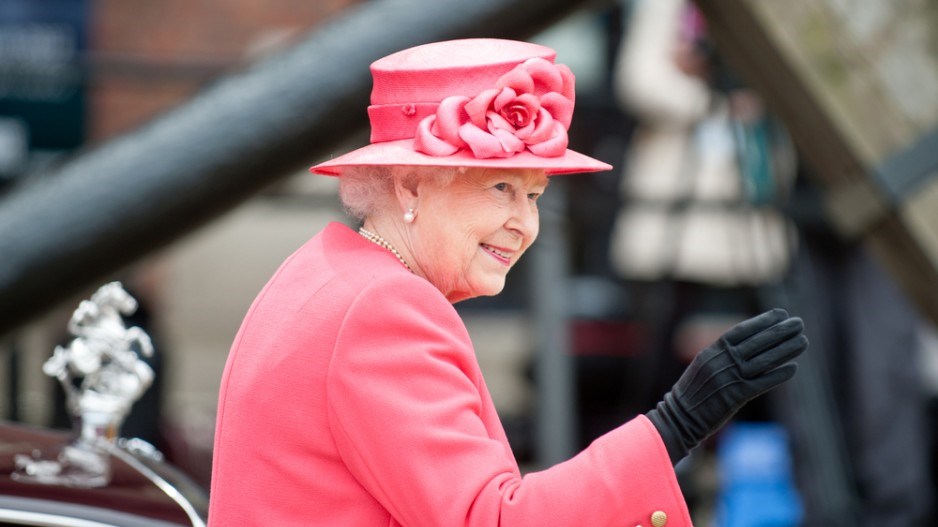The past few weeks have provided an opportunity for Canadians to reconnect with the Royal Family.
The visits to British Columbia by the current Duke and Duchess of Sussex – Prince Harry and Meghan Markle – led to plenty of chatter about popularity, funding and even misguided musings about appointing Harry as Canada’s governor general.
Research Co. asked Canadians about the monarchy, exactly one year after our last countrywide check on this topic.
Some time has passed after the initial shock of the so-called “Megxit.” We now know that Canadians will not pay for any security costs for the two members of the Royal Family who have decided to “step back from their senior roles.”
Canadians continue to be divided into three camps when it comes to the monarchy: those who prefer to keep it (27%, down four points since 2019), those who yearn for an elected head of state (32%, down one point) and those who are apathetic (28%, up nine points).
Public support for a “Republic of Canada” is highest among men (35%) and Canadians aged 18 to 34 (also 35%).
While the proportion of residents of Quebec who are willing to cut ties with the monarchy remains the highest in Canada, it fell by 12 points in a year.
Queen Elizabeth II continues to enjoy the highest favourability level of all members of the Royal Family at 69%, only two points below her 2019 tally. The rating of the two newest royals, Catherine (Kate Middleton), Duchess of Cambridge (64%), and Meghan, Duchess of Sussex (56%), fell by four points each. Camilla, Duchess of Cornwall, saw no change in her standing (32%), which was already at the bottom of the list.
There were steeper drops in the rating of Prince Philip (48%, down six points), Prince William (63%, down eight points) and Prince Harry (64%, down six points).
Prince Charles, first in line for the throne, gained one point to reach 44%, still unable to get a majority of Canadians to look at him in a favourable light.
The person who is expected to grace our money one day has a favourable rating of 57% among Canadians who want to keep the monarchy.
Among this devoted group of monarchist Canadians, favourability is far superior for Prince Charles’ mother (81%) and first-born son (76%).
The current situation of Prince Harry presents a unique conundrum. His decision to walk away from the Royal Family might be met with despair from staunch monarchists, yet is regarded as a welcome challenge to the status quo by those who dream of a Canadian republic.
Among Canadians who want to keep the monarchy, Prince Harry’s numbers stand at 76%, significantly higher than among Canadians who want an elected head of state (59%) or do not care about this debate (62%).
The recent trips have not boosted his numbers in British Columbia, where Prince Harry’s favourability rating stands at 71%, down five points since 2019.
When Canadians are asked whom they would prefer to have as the next monarch, more than a third (35%) select Prince William, while one in four (25%) chooses Prince Charles. This represents a six-point drop for William and a five-point gain for Charles.
But there is another group that showed growth on this question: 24% of Canadians (up five points) believe there should be no monarch after Queen Elizabeth.
The “king preference” question outlines an astonishing gender gap. While Canadian men are evenly divided when assessing father and son (29% each), Canadian women back William by a two-to-one margin (41% to 21%).
In addition, Canadians aged 55 and over, supposedly more in tune with the intricacies of tradition, are also more likely to look at William as “monarch material” (39%) than at Charles (24%).
Among Canadians who want to keep the monarchy, the choice amounts to a statistical tie (45% for Charles and 43% for William).
Another data point looks to the future.
The proportion of Canadians who believe the country will remain a monarchy in 2040 dropped to 52%, as the proportion who expect to have an elected head of state in two decades increased to 27%.
Our annual check shows that, in spite of all the coverage related to “Megxit,” the one sentiment that is gaining traction when it comes to Canadians and the monarchy is indifference. The proportion of Canadians who simply do not care when asked about the monarchy increased by nine points in a year.
In addition, the idea of Prince Charles as King is attractive to exactly one in four Canadians, and he and his current wife continue to post low favourability ratings.
If the heir were to ascend to the throne tomorrow, many Canadians would not “stand like greyhounds in the slips, straining upon the start.” •
Mario Canseco is the president of Research Co.
Results are based on an online study conducted February 22–25, 2020, among 1,000 adults in Canada. The data has been statistically weighted according to Canadian census figures for age, gender and region. The margin of error, which measures sample variability, is plus or minus 3.1 percentage points, 19 times out of 20.




